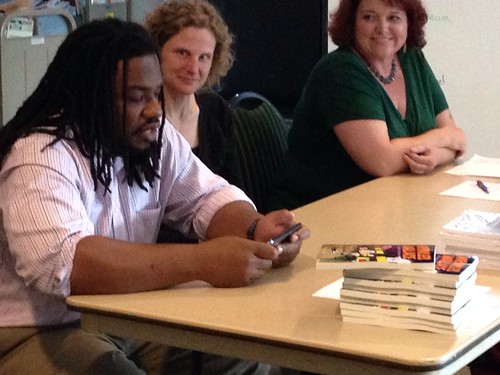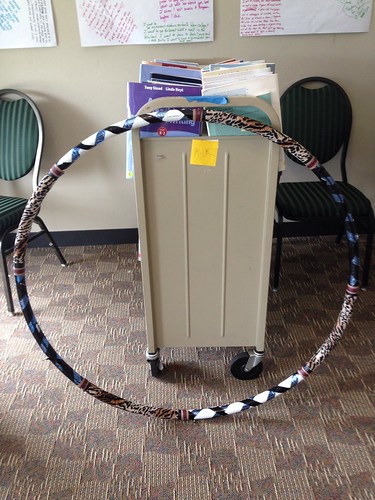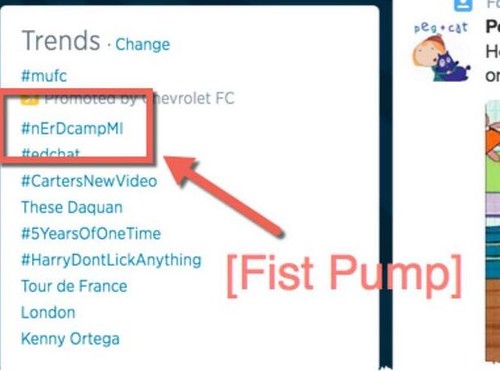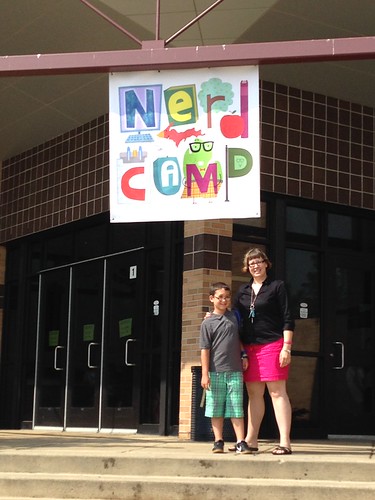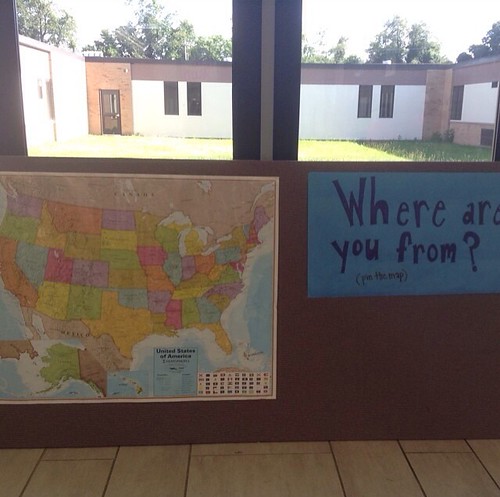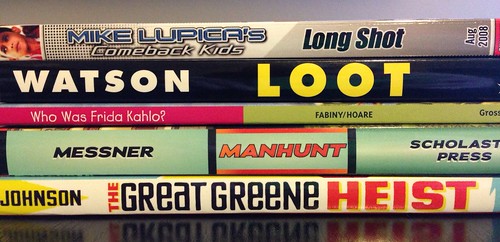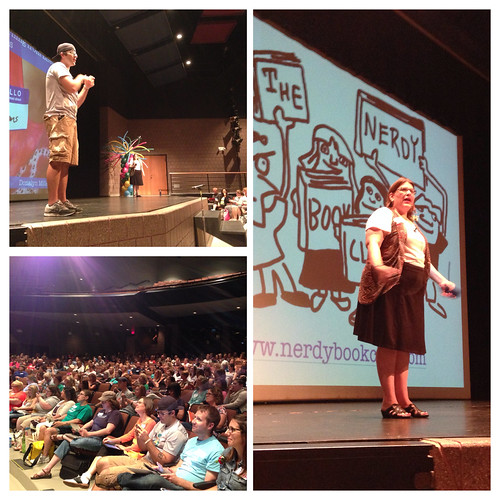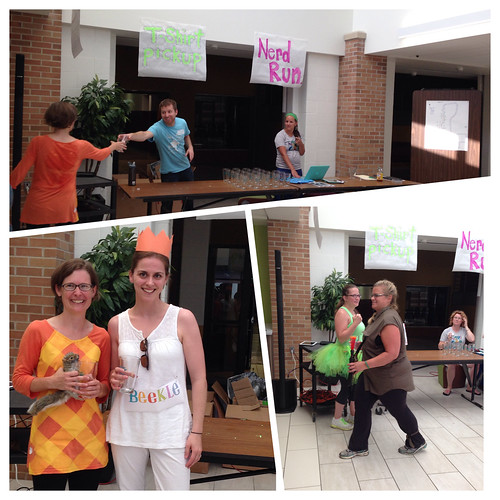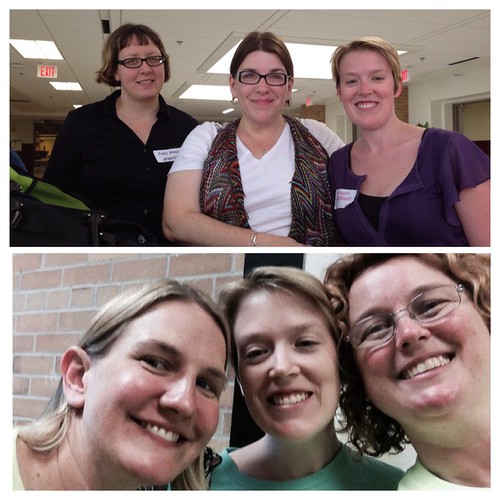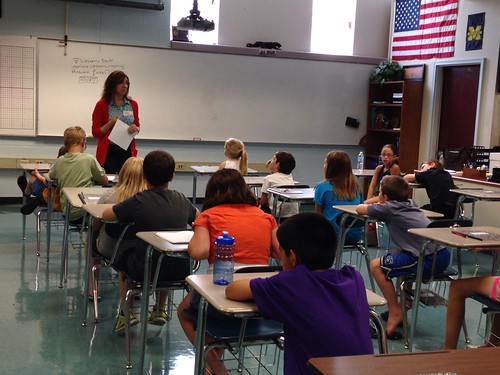but I have to be honest and say that I've been stewing about it for the past two weeks. As an English teacher, I am programmed to notice things like symbolism, metaphor, and juxtaposition in everyday life. So maybe it was because the day before I saw this video, I had just read Kevin English's brilliant post about the notion of "bad grammar" and then the very next day I experience a heavy dose of the exact issue Kevin is cringing about.
I know I run the risk of being told I have no sense of humor here when I say I didn't find "Word Crimes" funny at all. I especially don't find it productive to share in a classroom full of students who are already likely intimidated by writing. Let's just give them more reasons to think they can't do it. Grammar Girl also concurs with my finding no humor in the video and explains why she finds it problematic:
Perhaps the most troubling thing for me is seeing teachers who say they are going to use this in class because kids will find it funny and it will make them care about grammar. The entire ending of the video is putting down people who have trouble writing. The video says it’s OK to call people who can’t spell morons, droolers, spastics, and mouth breathers. Really, you’re going to use an educational tool that tells your struggling kids that they’re stupid? It just blows my mind that any teacher would think that’s OK.
Maybe I'm just hypersensitive about this issue since I will be presenting at NCTE in November with some amazing teachers about how we can try to change this narrative of "students can't write" but I want to empower my students to feel like they CAN write, not give them yet another reason to feel like it's something completely out of reach for them.
I posted these very thoughts about this issue on Facebook and a spirited debate ensued, some teachers finding my stance problematic because I put little faith in students to "get" that it's parody, but thankfully, I had the wit and wisdom of my friend and fellow NCTE presenter Kevin English on my side, who always knows exactly the right thing to say, and how to say it much more eloquently than I could:
I believe that the moves we make in our classroom, including the clips that we share, should lift students up. I don't see a place for this in the classroom for the reasons Beth already shared. I work with many students who struggle with writing. What they don't need is to continue the idea that I, as an English teacher, am the keeper of the rules and the wielder of the red pen. There is value in their home languages and grammars, and language changes all the time. Should students recognize that their audiences might judge them because they don't adhere to rules? Yes. Should they also know that what they bring to the classroom is valued, important, and equally legitimate? Even more so!
The title alone bothers me. These aren't "crimes," even jokingly so. Students hear enough punitive language as it is. It reminds me of the time a student said he "raped" his test. There's a power structure at play here in language, but I don't lose anything when someone swaps "fewer" with "less." But I can lose my relationship with that person if I point out what people would consider a misuse.
What compounds this debate is that there are so many usage guides that disagree and all purport to be the authoritative voice on academic English. This is why I want students to think more like a linguist. Does it make sense? Is it clear in meaning? Are there any moments that could confuse readers as to what your intended meaning is?
A few days later, Kevin shared a link with me that took me to a blog post by Lauren Squires called 25 Questions for Teaching with "Word Crimes" which urges teachers to do just what Kevin wants his students to do: think like a linguist rather than a grammarian:
So as a teacher, I want to say: Weird Al can think what he wants about language, and you the audience can laugh along or not, depending on your views on language or taste in music or whatever. But please do not mistake the video itself for an educational video. It will not teach students about language. It will not teach students about grammar. I've seen many comparisons to Schoolhouse Rock, but would any student who didn't already know what a "preposition" was leave Weird Al's video understanding it? No. Rather, on its face, this video teaches people that there is a right way to speak/write, and if you don't do things that way, you're a bad person (or a sewer person? or a person with a disability?) who should not breed. Nothing about how language works, or why these "rules" are what they are.
So I hope that if you are a teacher and you do want to use this video with students, you do it in a way that engages in a discussion, not only about the humor of it, but also why it is problematic. I pray that it isn't used as more fodder for grammarians to lecture students about how "improper" their writing is. Please read Lauren's 25 Questions for Teaching with "Word Crimes" before you show this video in a classroom.
Edited to add the following tweets as part of the conversation:
Standard English is not a superior form of the language. It is a privileged form of the language.
— Peter Sokolowski (@PeterSokolowski) July 23, 2014
@BethShaum So you're saying "standard" usage has more "blurred lines" than students are usually led to believe? Wait, was that a word crime?
— William Polking (@Polking) July 29, 2014

